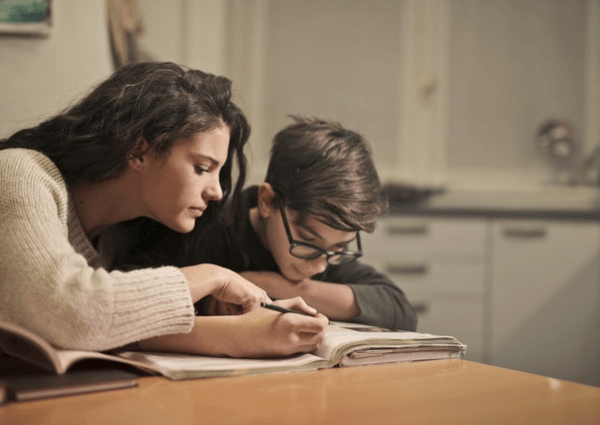
How small businesses are shaping the economy
May 31, 2020
New times presents new working opportunities
July 7, 2020Current school situation
On Tuesday 9th June 2020 the government announced that plans to get all pupils back to school before the end of term 6 is no longer viable. This is disappointing news for parents and in particularly for the children.It also means that parents will need to continue home schooling until the term ends. That equates to another 6 weeks of disruption to learning and working parents.
Schools officially closed on 20th March 2020 as the country went into lockdown. For some the transition was workable whereas for others it has been a logistical nightmare.
On the 1st June primary schools in some areas reopened to reception, year 1 and year 6 students. With stringent measures in place the classroom no longer looks the same. From reduced sizes, desks two metres apart, and permanent hand washing both students and teachers are working to adjust.
But not all parents have chosen to send their children back. Safety concerns, vulnerable household members and symptoms of coronavirus are amongst some of the reasons.
That leaves children in years 2 to 5 (ages 6 to 9) who are amongst those who will remain at home until at least September. Students in these age brackets are more likely to struggle carrying out assignments by themselves. This is putting huge strain on working parents.
So how can parents with primary school children manage?
Here's 10 ways on how to juggle both work and home schooling.1. Routine
Everyone needs a routine. It helps to structure the day into allotted segments of time. The most consistent piece of advice for working under the current conditions is to rise from sleep and go to bed at the same time each day.
Kids in particular respond well to routines regardless of how they are implemented. An overtired child will not be conducive to a day of learning. Stick to their normal bedtime and awake as normal as if going to school.
2. Contact the school for learning tasks
Check with the school for their plans to continue to coordinate learning. Having someone else organising the work will mean that parents can instil their role as a parent rather than a teacher. All parents know that when a child goes to school they lose a certain amount of influence. Teachers are generally well respected by this age group. Use terms like 'your teacher says' or 'your teacher wants you to do x'.
3. Be organised
As you would prepare for a next day work meeting, aim to review the lesson tasks the evening before so you know how to prepare your child. At the start of the new school day set aside time to discuss what work has been set, allowing for questions. Aim to either print out or download a copy of the work to their pads or a computer if available.
If you are having problems contact your school or speak to your child's teacher directly.
4. Discuss your daily requirements
It’s important to set the ground rules for the day in terms of your own working commitments. Talk to your child and let them know that throughout the day you also have to work. You may have scheduled calls or video conferences taking place during the day. To help achieve less interruptions set your child larger chunks of work and ask them not to disturb you when you are on the call.
If this isn't possible have other tasks to hand that can easily fill in the gaps if your child gets through the work quicker than anticipated or gets stuck. Reading and drawing are good examples.
5. Share the workload with a parent or carer
If you have another adult in your household take turns in supporting your child. Split out subjects which you are most comfortable in doing. E.g. One parent or carer maybe better at maths and the other at English.
If you are a single parent ask grandparents or other family members to help. Zoom has made social contact easy so don't be afraid to ask someone you know to spend time helping to encourage your child’s learning. Particularly if they have specific knowledge in a subject.
6. Take breaks as per school day
Children start school at approximately 8.45am, they have a mid-morning break for 20 minutes, an hour for lunch and another 20-minute break mid-afternoon. So factor these into the day. Don't expect your child to work the whole school day, this will only open you up to failure. Some days your child might achieve very little whilst on other days they may be happy to work most of the time.
7. Integrate other subjects
Obviously, maths and english are crucial subjects but so too are other topics. Science, geography, languages and art can break up the monotony. Watching child approved nature videos, researching in books or using kids YouTube can help your child be independent whilst giving you some extra time to work.
8. Marking and feedback
Unfortunately, it's not just a case of setting a task, your child's work needs to be checked. To add a little fun, use a colourful pen and make changes. Try to provide positive feedback so not to discourage them. Obviously, they need to learn but apply praise to areas that they get right. As mentioned previously you are their parent not their teacher.
9. Set up work stations
Make sure that everyone has a place to work within different rooms in the house. Ensure your children sit at a desk or a table as they would in school. Don't let them flounder around on the floor or on their beds.
Provide them with the necessary accessories and stationery, pens, pencils, exercise books etc. This will stop them shouting at you from a far every 5 minutes.
10. Get some fresh air
Sitting starring at each other from 8.45 to 3.15 is only going to give rise to frustration. Take a longer break at lunch and head outside if safe to do so. Or spend time in the garden looking at the different plants, nature and other interesting stuff. Kick a ball, or do some throw and catch. P.E. are school subjects too.
Older school age
Kids in year 6 and above should be able to manage most of the above by themselves. Schools have been proactive in creating task schedules to help pupils structure their time not just for the day but for the whole week. A timetable of activities that they can follow.Problems may occur in this age group whether they have returned to school or not. Some might be excited to go back, others less so. Some may want to go back but for safety reasons can't at this time. Communication and knowledge are key. An 11-year-old child will be able to understand if a parent takes the time to explain the circumstances.
Conclusion
Unfortunately, many of us never aspired to become teachers but after months of home schooling may have found a new element of respect for those that do. You might only have to help a few children, imagine a class size of 30.Be kind to yourself and try not to beat yourself up if you are struggling. Do what you can, when you can, giving praise to not only your children but also yourself. The situation is not ideal but the message is still safety first. And unless you are an english scholar, a maths professor or a scientist it is perfectly okay not to know about fronted adverbials, fractions or even the periodic name for table salt.
Try to find some fun in this new normal way of learning. The children will not be off forever, see it as an opportunity to spend more time with your kids and to take an interest in what they are learning. You might surprise yourself and find you also learn something.





